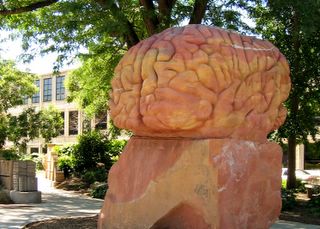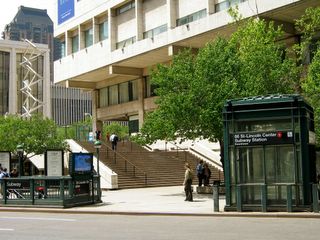It was a serendipitous programming choice, since this past week space exploration has been all over the news, with the shuttle Discovery's launch and a new planet identified. The other piece on the program was Strauss' philosophical tone poem Also Sprach Zarathustra, equally famous for its beauty and its science fiction associations.

a summer evening at Blossom

When Holst wrote The Planets there were only eight known planets in our solar system, and he didn't bother to write a movement for Earth. The selection of Planets often gets further reduced in pops concerts to just Mars and Jupiter, which are the most famous movements. I had a newfound appreciation for the piece, though, hearing it played well, and I almost wished they would turn off the big movie screen so I could just concentrate on the music. The images themselves were fascinating, though, and perhaps added something to the wonder and mystery of the music.
It left me thinking about how we are drawn to things greater than ourselves, and not just in a gravitational sense. There is something wondrous and inspiring about thinking about other worlds, vast storm systems on Jupiter bigger than our own planet, distances and spans of time too enormous to conceptualize. Looking up at a big screen panning over one of Saturn's moons, I felt like an insect drawn towards a light in the darkness. Maybe part of music's power is to bring us closer to a physical understanding of those systems and processes which we can barely comprehend mentally.
I think maybe it's the same need that makes running along a river, like the Cuyahoga which runs through Kent, such a fulfilling experience. Following the coursing water of the river, part of the planet's own circulatory system, somehow makes me feel a little more alive myself.

my favorite running trail in Kent, Ohio

The one kind of annoying thing is that there are always these big insects which land on the back of my head and ride along as I run - I swat them away, but they always seem to want to come back. It's odd, because they never seem to bite, or they do so politely without leaving any itchiness behind. I like to think, though, that it's not out of bloodthirstiness that they grab onto my head, but out of the same sort of need I sometimes feel, to be close to the inevitable flow of something greater than my self. Not that there's that much great stuff flowing through my head, but maybe from an insect's perspective....














